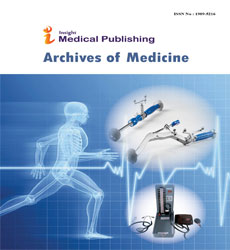Abstract
Immune System and ParkinsonÃÆâÃâââ¬Ãâââ¢s Disease
Parkinson’s disease (PD) is the second most common neurodegenerative disease and features many symptoms of motor neuron degeneration including bradykinesia, resting tremor, rigidity, and loss of postural reflexes. Presently there is no cure for PD and treatment methods are focused on addressing clinical symptoms, as the true pathological cause of the disease is still unknown. However, it is interesting to note that aging is the most important risk factor in the development of PD and similarly the immune system drastically changes with increased age. A weakening of the immune system, caused by aging, leads to the inability to metabolize a normal protein in the body, known as alpha synuclein. Toxic aggregation of this protein is linked to PD, and causes the formation of Lewybodies and Lewy neurites. These initiate a response from the innate immune system, which leads to a chronic inflammatory response in the CNS. In spite of the unbalanced immune system present in the aged population, methods of immune modulation hold promise in returning the immune system back to its balanced state present in youth. The discovery of a biomarker present in the primitive stages in disease pathophysiology may unlock the key changes which lead to the disparity between the innate and adaptive immune system causing the progression of PD. In this review, we will collectively describe changes in the immune system of PD patients in hope that it will provide insightful information to better understand the etiology of PD.
Author(s):
Adryan Perez , Lawrence Guan, Kyle Sutherland and Chuanhai Cao
Abstract | Full-Text | PDF
Share this

Archives of Medicine peer review process verified at publons
Abstracted/Indexed in
- Google Scholar
- Genamics JournalSeek
- China National Knowledge Infrastructure (CNKI)
- Directory of Research Journal Indexing (DRJI)
- WorldCat
- Proquest Summons
- Publons
- Geneva Foundation for Medical Education and Research
- Secret Search Engine Labs
- Euro Pub
Open Access Journals
- Aquaculture & Veterinary Science
- Chemistry & Chemical Sciences
- Clinical Sciences
- Engineering
- General Science
- Genetics & Molecular Biology
- Health Care & Nursing
- Immunology & Microbiology
- Materials Science
- Mathematics & Physics
- Medical Sciences
- Neurology & Psychiatry
- Oncology & Cancer Science
- Pharmaceutical Sciences


